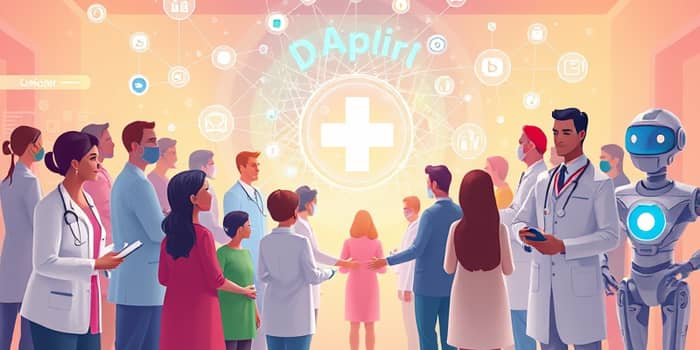
The healthcare landscape is on the verge of a profound transformation. Fueled by groundbreaking innovations and the lessons of recent years, the industry is poised to deliver smarter, more compassionate care than ever before.
From personalized therapies to intelligent remote monitoring, these advances promise to redefine how we prevent, diagnose, and treat illness—putting patients at the center of every decision.
At the heart of this revolution lies personalized treatments based on genetics. No longer do physicians rely solely on population averages; instead, they harness genomic data, environmental factors, and lifestyle insights to craft therapies uniquely effective for each individual.
Precision medicine is already showing remarkable results in oncology, where targeted therapies can attack tumors with minimal collateral damage. Similar approaches are emerging for cardiovascular and rare diseases, minimizing side effects and maximizing outcomes.
Telehealth has shattered geographical barriers, making quality care accessible from any corner of the globe. Today, 62% of Americans utilize virtual care, and for many, a video consultation is as routine as an in-person visit once was.
This model not only saves time but also reduces strain on hospitals. For patients with chronic conditions, virtual check-ins and app-based therapy plans ensure consistent support—whether managing diabetes or mental health.
Wearables and Internet of Medical Things devices collect real-time data that clinicians can act upon immediately. These tools enable early intervention before complications escalate, drastically cutting emergency visits and readmissions.
Healthcare leaders recognize this potential: 41% are planning significant investments in RPM and AI over the next three years. The result? A system that watches over patients 24/7 while they remain in the comfort of home.
Artificial intelligence is reshaping every corner of healthcare—from reading radiology scans faster than the human eye to predicting patient risk profiles with uncanny accuracy. Predictive models flag early warning signs, allowing providers to intervene before hospitals become overwhelmed.
Beyond diagnostics, AI streamlines administrative tasks like scheduling and billing, freeing clinicians to focus on humanity’s most profound calling: caring for one another.
Mental well-being is finally receiving the digital attention it deserves. From AI-powered therapy apps for anxiety to virtual reality programs for PTSD, technology is breaking down stigma and delivering interventions wherever patients feel safest.
These platforms personalize each session, adjusting techniques in real time based on biometric feedback and user input.
Imagine receiving surgical follow-up or complex therapies in your own living room. Hospital-at-home programs leverage digital tools and remote monitoring to deliver acute care with hospital-grade safety.
This shift not only eases bed shortages but also enhances patient comfort, accelerating recovery and reducing the risk of hospital-acquired infections.
Seamless data sharing is the backbone of modern health tech. When devices and platforms communicate effortlessly, providers gain comprehensive insights into patient health, enabling more informed decisions.
Efforts to standardize data formats and build open ecosystems are accelerating, promising a future where every health record, imaging result, and wearable metric flows into one unified narrative.
No revolution comes without hurdles. Data privacy concerns and cybersecurity threats loom large, demanding robust defenses and transparent governance. Regulatory frameworks must evolve to keep pace with innovation while protecting patient rights.
Additionally, the digital divide threatens to leave vulnerable communities behind. Investing in next-generation digital infrastructure and tech literacy programs is essential to ensure equitable access for all.
As we stand on the cusp of this next big wave in health tech, stakeholders across the spectrum—patients, providers, policymakers, and innovators—must collaborate.
By embracing personalized approaches, harnessing AI, and ensuring inclusivity, we can build a system that is not only more efficient but profoundly more human. The promise is clear: a future where wellness is proactive, care is compassionate, and every person can thrive.
References













